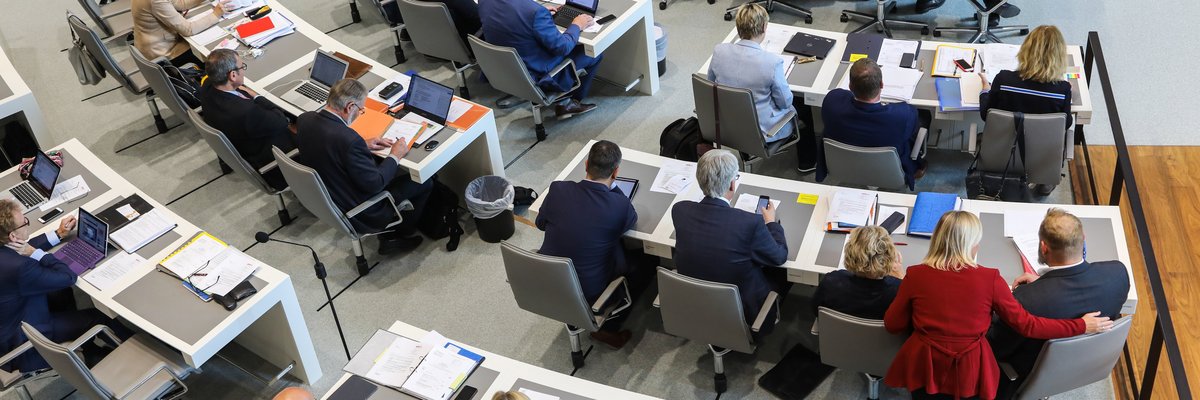Members of the State Parliament – Rights and obligations

Committed to all the people
The constitution states that the Members of the State Parliament represent all the people – not just their own voters. They are not bound to orders and instructions, but are solely subject to their conscience. Those elected to Parliament should be free to act politically without coercion or intimidation. For this reason, MPs have special obligations, but also special protection rights.
The obligations of elected representatives:
- they must cooperate and participate; in this respect the rights of participation and involvement (as explained below) are also obligations of the MPs.
- They are obliged to maintain order in Parliament. Order is enforced by the President.
- Members of the State Parliament are not allowed to accept benefits.
- They must refrain from abusive practices and preclude conflicts of interest in their mandate.

Those who have obligations also need rights
These rights of MPs are designed to protect them from any overbearing of state power and its law enforcement agencies, as well as from the pressure that influential third parties can exert on them. Some of these rights have a long tradition. The right to immunity, for example, dates back to the beginning of the French Revolution in June 1789. At that time the delegates to the newly constituted National Assembly were afraid that King Louis XVI would have them arrested. The resolution they passed that granted delegates immunity did not mean that they could commit crimes without being punished. The National Assembly reserved the right to investigate a delegate itself or – in the event that they were caught red-handed – to decide, following a review of judicial inquest methods, whether there were grounds for prosecution. This resolution by the National Assembly of 26 June 1790 is considered to be the birth of the right to immunity that still exists today. These extensive protection rights are not, however, a carte blanche for MPs: the State Parliament can bring charges against any of its MPs in the Constitutional Court for abusing their position for pecuniary gain. If the Constitutional Court decides to prosecute, the accused MP loses their seat.
Protection rights
Members of the State Parliament must not be brought to account for statements made in the plenary session, in a committee or in a parliamentary group. This protection does not apply in the case of defamatory insults. This indemnity is intended to safeguard the free exchange of views in Parliament.
Members of the State Parliament can only be held accountable or apprehended for an offence with the approval of the Parliament, unless the person concerned is arrested not later than the end of the day after the offence is committed. However, for elected representatives this protection right is often more of a burden than a privilege, as the withdrawal of immunity is often decided in a public meeting – and thus in the eyes and ears of the public. The withdrawal of immunity does not necessarily mean that the person concerned is actually guilty or has been found guilty. The main purpose of immunity is to allow Parliament to continue to function.
Members of the State Parliament are entitled to refuse to give evidence about people who have confided in them as MPs or to whom they have entrusted information in this capacity. This also applies to the information itself.
Anyone who puts themselves forward for a seat in the State Parliament is entitled to take the necessary leave from work for the election campaign. Once elected, no one may be prevented from accepting and exercising their mandate. Employers are not permitted to terminate employment for this reason.
Rights of participation and involvement
The right to participate states that MPs can participate in all meetings and votes of the State Parliament. However, the President can exclude a Member from a sitting if they have been called to order three times in the same sitting by way of a call to order.
A minimum of ten MPs can table a draft bill or an independent motion, submit a major interpellation to the government or table a motion to change the agenda. These rights are also available to the parliamentary groups.
Draft bills are referred to a committee by resolution of 30 MPs.
One-fifth of all MPs can request the appointment of a parliamentary select committee.
One-third of all MPs can request a vote of no confidence or the dissolution of the State Parliament.
